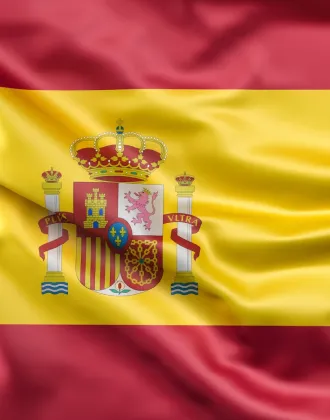
Crypto License in Slovakia
Last Update: 13.11.2025
Support in the issuance of Slovakia crypto license with a guarantee of a turnkey contract.
Currently, crypto-asset services in Slovakia are not regulated by the powers of National Bank of Slovakia (NBS), but strict rules apply to them. Therefore, no regulatory approval or license from NBS is required to carry out crypto-activities in Slovakia.
It should be noted that after the registration of Act No. 279/2020 Coll. amending Act No. 297/2008 (Prevention of legalization of profits derived from criminal activities and prevention of terrorism financing), all entrepreneurs who provide services of cryptoexchange, storage, and maintenance of cryptocurrencies must register with the Trade Licensing Office to provide crypto-activities in Slovakia.
To obtain a crypto license in Slovakia, you must have a local company providing cryptocurrency services. The minimum share capital of a company is 5,000 EUR (you do not have to pay the amount immediately during registration). Besides, appoint a director with EU or Slovakian citizenship and develop and submit a business plan.
All cryptocurrency businesses are subject to checks and identification. Such requirements have been received from the EU, which Slovakia has implemented in state rules and regulations. Anti-money laundering (AML) laws and KYC regulations apply to regulation and licensing. In addition, all regulators are allowed access to corporate information.

Find more information about the Slovakia crypto license
Types of crypto license in Slovakia
Intermediation of cryptocurrency exchange
This type of license allows the firm to exchange digital currency into fiat and vice versa, as well as crypto into crypto for a fee.
Maintenance and storage of funds on cryptocurrencies
License for companies introducing wallets for cryptocurrency storage, creation of encrypted client keys, as well as their storage.
Crypto activity authorization in Slovakia packages
Choose the best package of services for obtaining a crypto activity license in Slovakia
Full set up of the VASP business with all the necessary infrastructure, connection to KYC providers, local substance and Accounting services
- Full Turnkey Company Formation
- Registering as VASP within the Regulator
- Address of Registration for one year
- Individual AML/KYC Policy
- Handling the communication with Finančná spravodajská jednotka (FIU)
- Apostilled and Translated corporate documents
- Assistance in opening Business account for crypto operating activity
- Local Board Member/ AML Officer
Exhaustive set up of company infrastructure for the start of operational activity
- Full Turnkey Company Formation
- Registering as VASP within the Regulator
- Address of Registration for one year
- Individual AML/KYC Policy
- Handling the communication with Finančná spravodajská jednotka (FIU)
Registration of the Virtual Asset Service Provider under the minimum regulatory requirements
- Full Turnkey Company Formation
- Registering as VASP within the Regulator
- Standard AML/KYC Policy


Process and timeline for obtaining a crypto license in Slovakia
COLLECTING DOCUMENTS FROM THE CLIENT’S SIDE TO INITIATE THE PROCESS
Stage 1
- Preliminary assessment of the project
- Collecting KYC and business descriptions
- Drafting Power of attorney
REGISTRATION OF LIMITED LIABILITY COMPANY (S.R.O.) IN SLOVAKIA UPON DOCUMENTS RECEIPT ON HANDS
Stage 2
- Sworn translation of powers of attorney into Slovakian language
- Conducting a transaction to establish a company through a notary
- Entry of the provision in the commercial register
PRE-APPLICATION WORKS
Stage 3
- Preparation of the AML/KYC polices adapted under the company type of crypto oriented activity
- Local Director/AML officer candidate search and employment arrangement
- Training course & Preparation of the candidate and adaptation of his skills to the activities of the company. Reporting guidance to the Slovakian Financial intelligence Unit (FIU)
- Submitting the application and registration within FIU
- Leading the Client and conducting negotiations with the regulator and full support during the entire process until the registration is accomplished
CORPORATE ACCOUNT OPENING B2B & C2B SEGREGATED (FOR CRYPTO ORIENTED ACTIVITY) WITHIN FINANCIAL INSTITUTION
Stage 4
- Collection of corporate documents for opening an account (Registry card, AoA, MoA) – notarized, apostilled with sworn translation into English
- Conducting preliminary negotiations and leading the Client through the entire process of the corporate account opening
Request more information about the crypto License in Slovakia
Firms doing business in the cryptocurrency industry must meet the following requirements:
- A detailed business plan
- 5000 € – minimum authorized capital
- Apostilled copies of documents of all owners, founders, employees
- Owners and directors of the company must have an impeccable reputation and confirm this with an appropriate certificate
- Document confirming the place of residence (registration from local authorities or utility bill)
- Unique company name (three variants)
- Corporate bank account
- No citizenship requirements
- No restrictions on the movement of capital and income;
- No restriction on currency controls;
- No restriction on the employment of foreign staff;
- High reputation and stability of the political system;
- Obtaining a certificate of tax residency;
- Tax is 22%, but it can be reduced to 0.5% if an agent scheme is used and the accounting is done properly.
By ordering the service of registering a company and obtaining a license in our company, clients:
- save time and budget
- minimize to zero the risks and possibility of mistakes
- keep confidentiality
- can ask for advice at every stage of the process
- get a guaranteed result
Overview of Crypto Regulation in Slovakia
| Project time frames | 1 to 2 months |
| State fee for application | 0€ |
| Required share capital | 5000€ |
| Corporate income tax | 21% |
| Annual supervision fee | 0€ |
| Local staff member | Local Director |
| Physical office | Not required, recomended |
| Accounting audit | Not required |
| Sustainability | Not sustainable |
| Bank account options | European EMIs |
Types of crypto assets in Slovakia
Cryptocurrency assets and tokens can be different and fall into the following categories:
Virtual assets (crypto token)
A virtual currency or cryptocurrency denomination token that is used as money, a payment method, or a currency exchange. It is a tradable asset or utility that is in its blockchain and enables the owner to use it for an investment or economic purpose.
Utility tokens
Service tokens are a virtual currency that is created for business on any platform. As a rule, a service token represents points received for executing company shares and interacting with game currency. It is worth remembering that it is not an investment, but a coin used more as a coupon for product development. Filecon is a prime example. The project received $257 million on sales of its tokens to give users access to the cloud.
Investment tokens (Security)
Investment tokens are common securities that conform to a common rule. Records of such securities are not stored in paper form but on a blockchain. Therefore, they are often referred to as digital securities. They were created to simplify the activities of investors and are, in fact, shares in a company. They indicate the right to own and offer the prospect of dividends.
Virtual Assets
Virtual currency represents an alternative payment form created using encryption algorithms. The use of encryption technology allows cryptocurrencies to function both as an independent currency and as a virtual accounting system.
No rights are usually associated with virtual assets, as they are only intended to be exchanged for officially recognized currencies, other virtual assets, or existing goods, or services.
Virtual currency is established as a financial asset for businesses dealing with cryptocurrency for commercial use in Slovakia. More precisely, in accounting, cryptocurrency is a short-term financial asset, unlike cash. Thus, the loss can’t be carried forward to the next period. The assets will be valued at market prices at the time of the transaction.
In addition, the tax to be considered by businesses or individuals is a tax on the production of virtual currency. The resulting cryptocurrency will then be registered at market prices, should it be sold.

Investment tokens
Investment tokens can be called “securities tokens” because they are tied specifically to the supply of such and typically represent companies stocks or investments in technology companies growth. In various jurisdictions, they are regulated like traditional securities. They are designed to use stocks, bonds, certificates, or other investment assets.
An investment token is a financial asset that represents an investment or ownership of an asset, and may also provide holders with additional privileges, such as the right to vote.
When a user purchases a security token, he automatically becomes a key shareholder, in a situation where the value of the company depends directly on the investment. This process is different from crypto coins, where the price is directly related to demand and trust in the platform.
Many cryptocurrencies were not originally intended as investment instruments. Bitcoin was never designed as a security token, but at the same time, investors have noticed that they receive significant earnings when bitcoin is listed on the exchange.
Ethereum was developed to pay transaction fees on its network. Under these conditions, it is a cryptocurrency. But under conditions of trading on exchanges and its storage (because of dynamic financial growth) is considered Security.
This type of asset is regulated in federal law, and if it is not complied with, the entire operation can be terminated. But, if all established regulatory rules are followed, investment tokens offer the possibility of promising applications and earnings.
Utility tokens
Unlike virtual currency, which has the function of exchanging funds and has a clear value, Utility tokens are non-monetary assets and are similar to a ticket or coupon. Typically, utility tokens are associated with specific blockchain projects or ecosystems.
Types of service tokens:
- Interchangeable (can be equivalently exchanged for other tokens)
- Non-exchangeable (allows you to use a unique possession, such as a plot of land)
A platform that issues service tokens can provide a wide range of functions to the owner of the token. Some may provide access to certain services and products developed by the issuer. Others may provide holders with the ability to receive special services or preferential treatment, such as discounts when launching startup products. For example, these products may be software packages as a service platform, rewards, or additional benefits.
What is the difference between Utility tokens and Security tokens?
| Service tokens | Security tokens |
|---|---|
| Bound to a specific platform | Are an investment |
| You can buy access to a service or product | You can buy a share of the company, shares |
A service token can easily be confused with a security token, as it can also go up in value and be used as an investment. Securities, on the other hand, can provide bonuses and discounts from companies in addition to their basic functions.
The main difference: service tokens are primarily used for their intended purpose, while investments are a secondary use. Because they are an advertising tool and do not provide a share of ownership of the company, and therefore are not a direct investment. Service tokens allow you to invest, and the secondary use is their utility.
Two main types of company forms in Slovakia
LLC (Limited Liability Company)
This is the most common type of company for registration in Slovakia
The minimum amount of the authorized capital must be 5000 EUR. The number of founders – not more than 50 people, with a minimum contribution from each person not less than 750 EUR.
Joint Stock Company
Divides into two types: Private JSC and Public JSC. Shares in the company – registered, bearer securities are not used.
The amount of the authorized capital from 25000 EUR. The entire contribution is divided into shares, which have a certain value.

Crypto taxes in Slovakia
In March 2018 Slovakia adopted laws on cryptocurrency. According to these laws, all profits derived from cryptocurrency transactions are subject to taxation. All cryptocurrency companies that operate for commercial purposes must take into account the need to pay crypto taxes in Slovakia
On the accounting side, cryptocurrency is designated as a short-term financial asset, which is different from fiat money. Therefore, you will not be able to carry losses to the next period when reporting. Moreover, Slovakia crypto license holders should keep in mind that crypto assets will be valued at the market price at the time of the transactions. Taxation will be applied in the form of the virtual currency mining tax, which is recorded at market value as soon as the sale occurs.
All profits that were earned from providing services for the sale or exchange of cryptocurrency in Slovakia are taxable. When filing a personal income tax return, earnings from cryptocurrencies must be reported under “other income”.
Taxation depends on the amount of earnings:
Individuals pay 19% tax on earnings less than 38,000 €. If the amount of income exceeds the threshold, the tax increases to 25%. Legal entities are taxed at 15% if the income is less than 49.790 €. If the income exceeds this amount, the income tax is 21%.
It should be emphasized that companies involved in cryptocurrency activities in Slovakia can use various tax incentives.
For example, a 200% discount on R&D projects, if the cost of the project can be deducted twice from the tax base. This is due to the 70 international agreements that allow the elimination of double taxation. Slovakia provides an opportunity for residents to protect their profits from double taxation in different countries.
FAQ about Crypto license in Slovakia
Is cryptocurrency legal in Slovakia?
Cryptocurrency is a digital means of savings. Virtual currencies are not issued by the central bank and therefore are not considered legal tender. However, legal entities or individuals can use cryptocurrency as a payment instrument that can be transferred, stored, or sold.
Do you need a license for cryptocurrency trading in Slovakia?
For legal activities, every company engaged in the exchange, storage, and sale of virtual currency must obtain a license.
Is cryptocurrency taxed in Slovakia?
All businesses that are associated with cryptocurrency are required to register with the tax office. You can choose a yearly period from the date of company registration or coinciding with the standard tax year. This type of profit should be noted in the column “other income”.
Explore other Crypto Licences
Connect with our experts
Our experts will tell you how to do it as quickly and easily as possible.
By clicking the button, I confirm that I have read the privacy policy and consent to the collection and processing of my personal data in accordance with the GDPR rules.

















